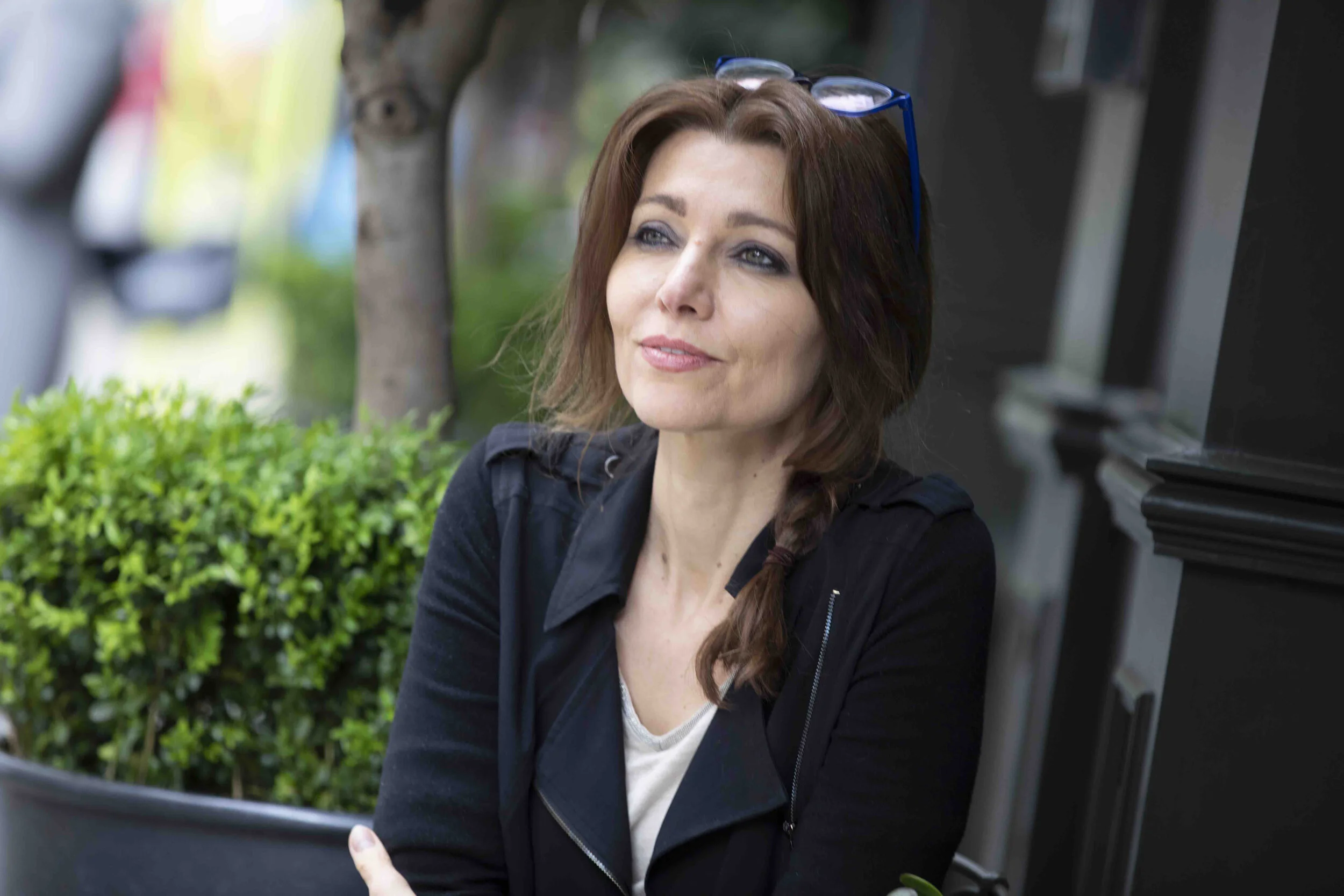Meet elif shafak
Elif Shafak: How does feminism move forward?
In her talk at Moving Ahead’s Gender Balance Summit 2020, British-Turkish novelist Elif Shafak focused on one of the many barriers that inhibits gender equality – the ‘emotional obstacle’.
Emotional obstacles, Shafak explained, live alongside political, cultural and financial obstacles, but are arguably the “hardest to challenge” because they live within us. We, as women, internalise the patriarchy – often without realising – and it “pulls us down”. To illustrate the idea, Shafak gives the example of the contrast she sees between young and teenage girls, when she visits their schools. The seven- and eight-year-olds are full of “courage and creativity and self-confidence,” says Shafak. When she asks the class, “Is there anyone in this room who would like to become a writer?” many hands go up, with the girls having as much if not even more confidence than the boys. At high school, however, “everything’s changed.” By that time, the now-teenage girls are timid; more aware of their body and body language, how people will judge them and how those judgements will stick. And when Shafak asks them if anyone would like to be a writer, or a poet, nobody puts up their hands.
Patriarchy is universal
And this problem is global, says Shafak. It may manifest differently from country to country, and with a different intensity but ultimately, “patriarchy is universal, gender discrimination is universal.” In many countries that we may consider ‘more advanced’ things are actually declining, says Shafak, citing a report by Freedom House that suggested 35 countries were making progress with democracy, but 72 were going backwards, “with bewildering speeds.”
Whenever a country “tumbles into nationalism, authoritarianism, populism and religious fundamentalism,” says Shafak there’s an increase in sexism and homophobia. “And that's not a coincidence.” Who would have thought, she asks, that today we would see buses in Spain with ‘Stop the feminazi’ on it? Or that in Italy there would be ‘traditional family’ conferences that are openly against feminist movements? Or that in ‘state after state’ in America, there would be extremely rigid abortion bans, even in cases when there's a child or rape involved? Why? Asked one member of the audience. “Because of ‘a fear of a loss of power”, replies Shafak. The minority/majority ratio is changing, and with that comes fear.
But this is a problem that impacts women and men across the board, and for feminism to move forward we must embrace pluralism, says Shafak. ‘[Feminism should] go hand-in-hand with LGBTQ rights, go hand-in-hand with men from disempowered backgrounds,’ while still being aware of that which keeps us apart, such as class and ethnicity.
Empowerment through solidarity and sisterhood
In her own upbringing, differences came together to create an empowering environment. Shafak gave the example of her mother, who was rational, secular and modern, and her grandmother, who was deeply spiritual and traditional. But when her mother – a young divorcee – ‘should have’ been married off, her grandmother intervened and encouraged her daughter to return to university instead.
“I think the impact of that kind of solidarity, the impact of that kind of sisterhood goes beyond generations,” reflects Shafak. “It changed my mother's life, changed my life, and hopefully it has a positive impact on my children's lives… if we want to empower women, the only way we can do this is through solidarity and sisterhood.”
The power of storytelling
So how do we overcome emotional obstacles and come together in solidarity? Through storytelling, says Shafak.
“I believe we live in an age in which we have too much information’, she says. ‘And we can't process this much information… we only scroll up and down, but it doesn't leave an impact on us.” Knowledge, and wisdom – the bringing together of the heart and mind – comes from storytelling and from books and from slowing down a little bit. Books are also vital for their ability to connect with and impact our inner selves, in a way nothing else can.
Shafak gives the example of someone who comes from a very conservative, xenophobic and/or homophobic family in Turkey, who has absorbed such views and would, ‘in the public space’ verbalise negative stereotypes and clichés. The same person would approach Shafak about one of her characters, maybe someone who is Armenian, Jewish, Greek, gay, bisexual or transsexual and say, ‘I liked this character so much…why did you hurt this person, why did you finish like that?’
People who are intolerant in the public space, become more open-minded and ready to connect with the other “when they retreat into the privacy of their inner world,” explains Shafak. “We therefore need storytelling in order to encourage this ‘cognitive flexibility’, to encourage more people to see things from others’ perspectives, and ultimately, to move forward.”
Password: Equal2020



